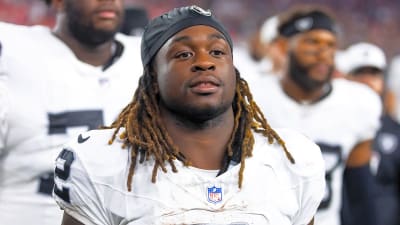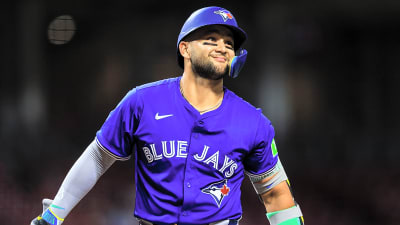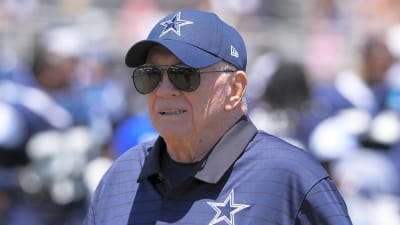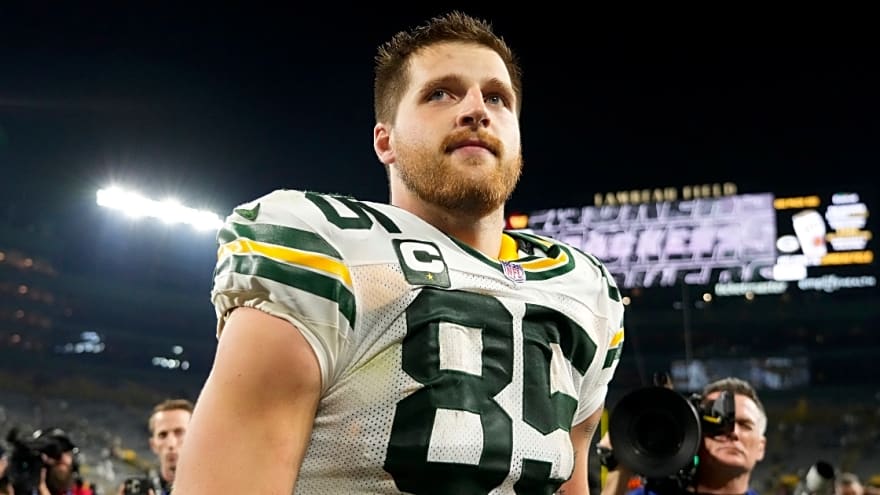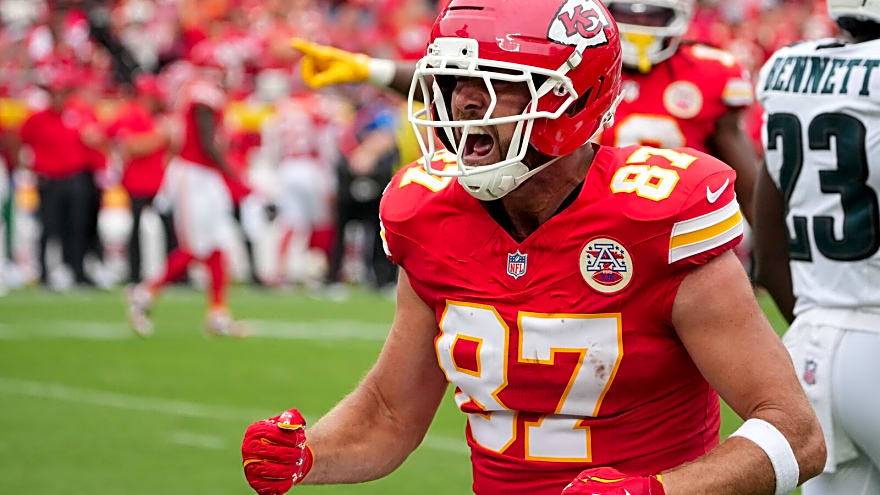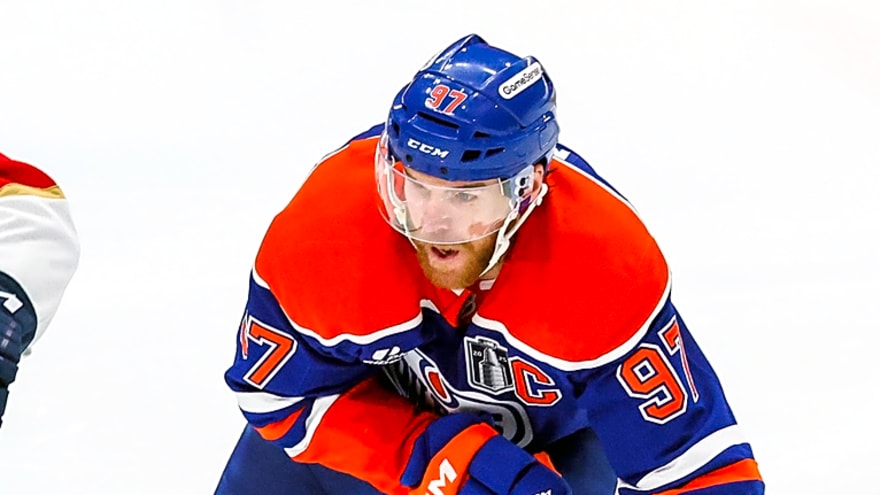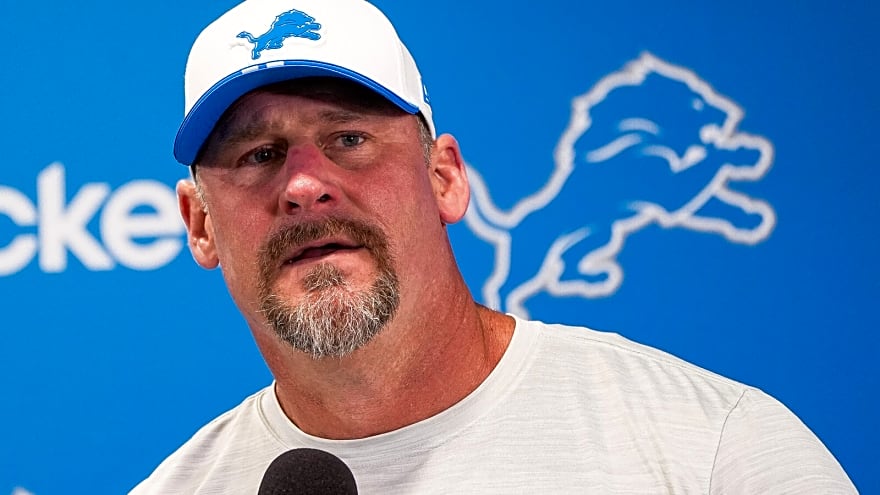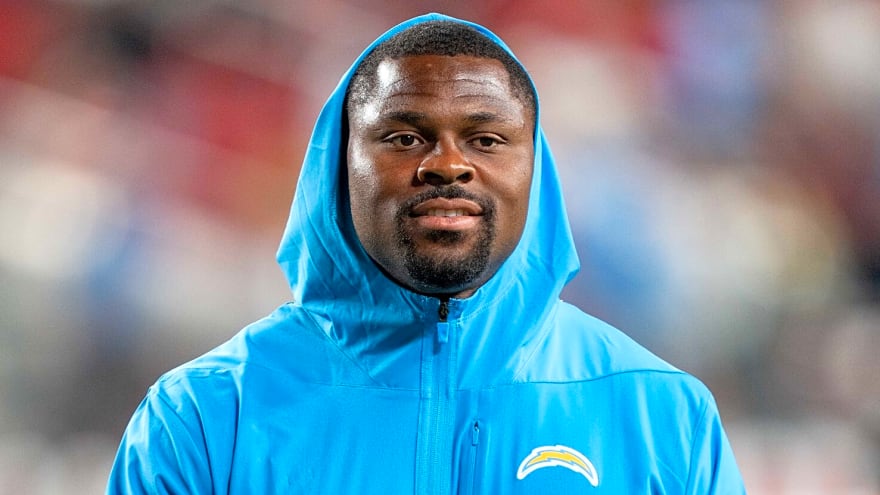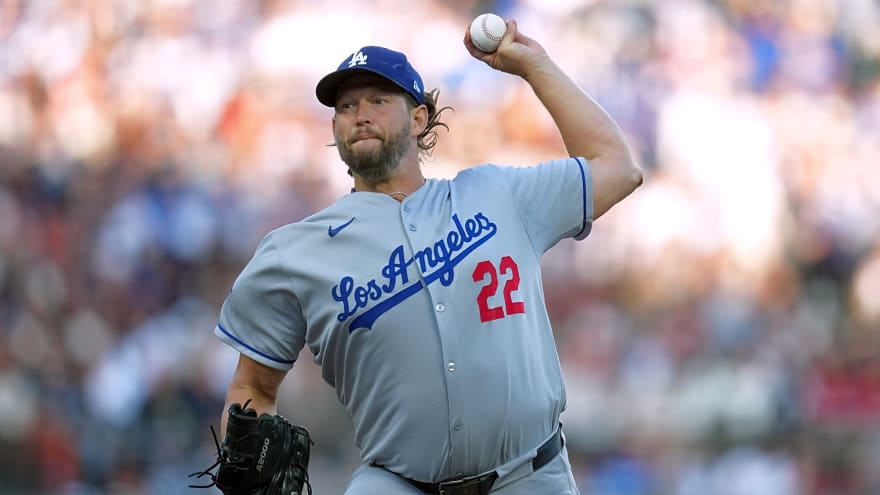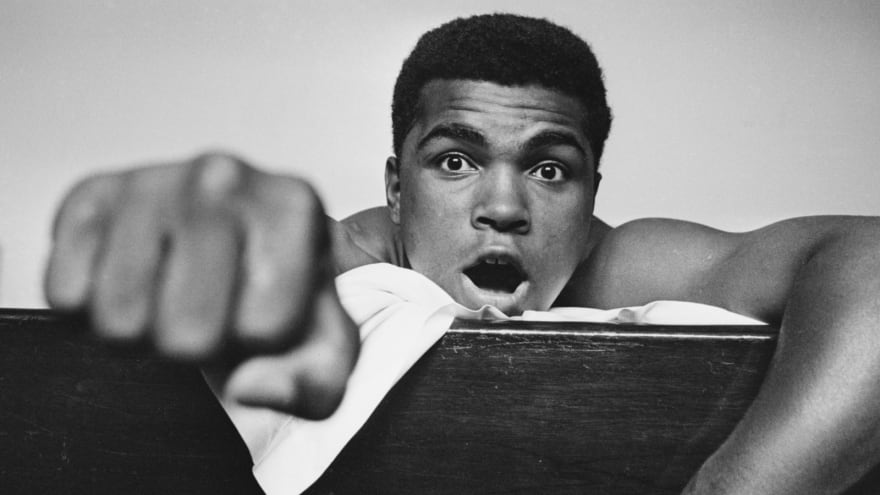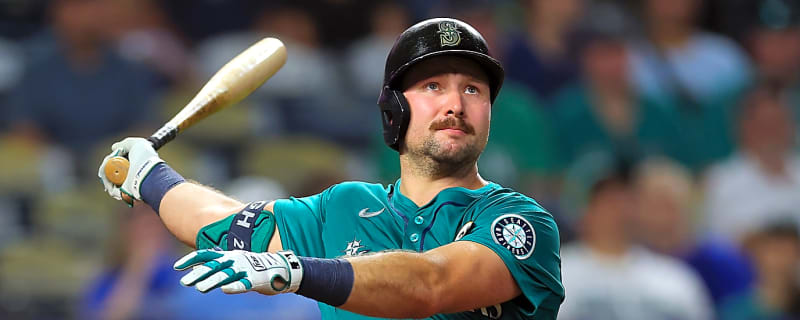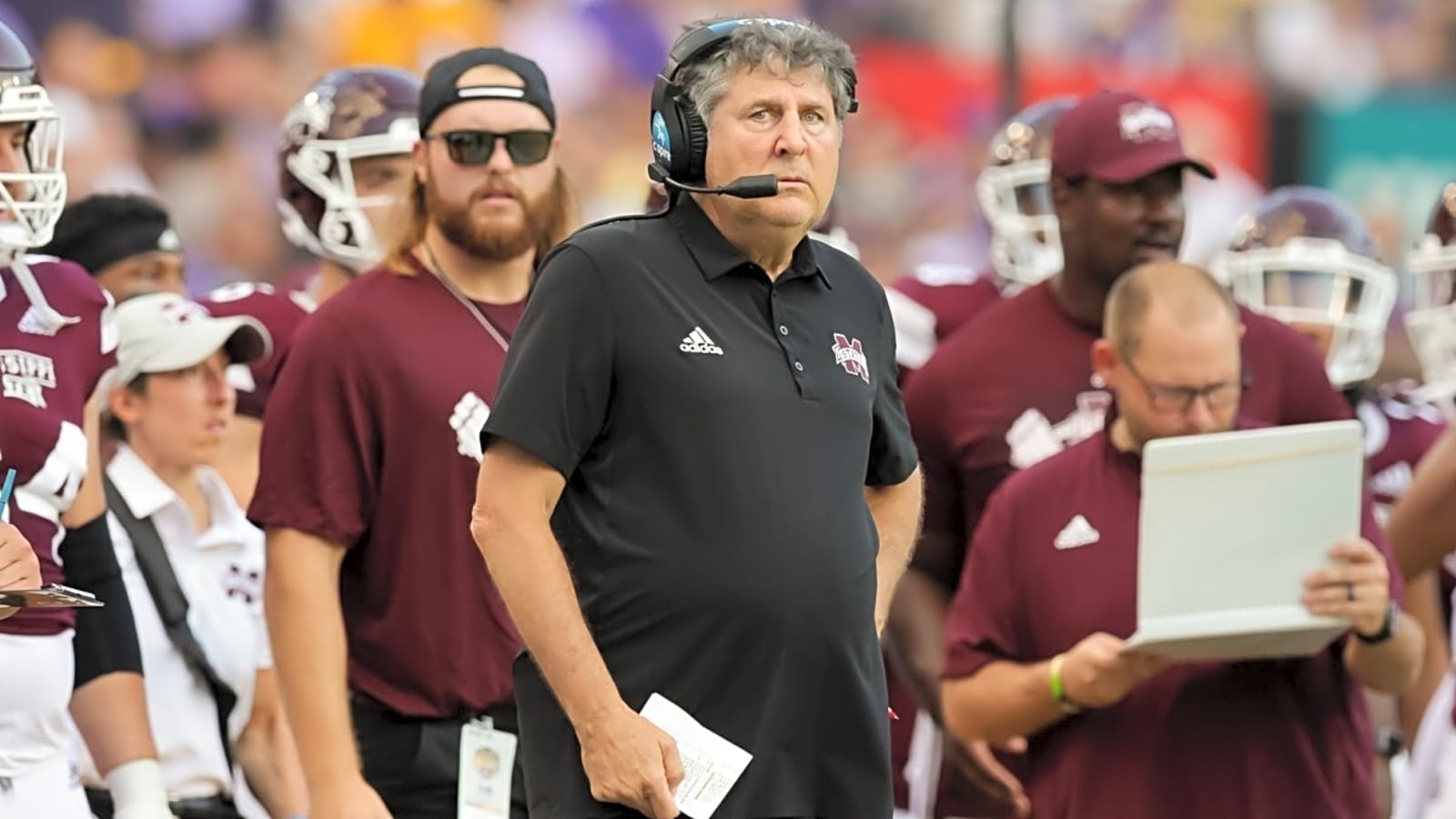
By Mike Huesmann
Surely many of you saw the news this past week that the College Football Hall of Fame lowered its winning percentage threshold from 60 percent to 59.5 percent. This is universally seen as a nod to former Texas Tech, Washington State and Mississippi State coach Mike Leach, allowing for his induction since he has passed away in 2022.
He is certainly a worthy candidate for induction—I’m not taking that away. But I will outline reasons why this changing of the threshold shouldn’t have happened.
“There’s nothing balanced about 50% Run and 50% Pass - that’s 50% stupid.
— Coach Dan Casey (@CoachDanCasey) May 30, 2025
What is balanced is if you have 5 skill positions and all 5 are contributing the offensive effort in a somewhat equal fashion.”
-Mike Leach (on Offensive Balance) pic.twitter.com/GOKry40qW0
A Threshold Shouldn’t Exist
Every candidate should be explained on their own and individually of others. I would tell the HOF administration that if your voters are so obtuse that they need these arbitrary guidelines, you have the wrong people voting.
Not all coaching wins are created equal. For example, guys like Larry Coker and Tom Osborne both inherited elite programs at the height of national prominence. You’re going to win more games in those cases. Osborne is a candidate for the Mount Rushmore of head coaches and certainly belongs in. Coker meets all the requirements, but does he really belong?
That’s where the voters have to be skilled, knowledgeable and understand context. Should former Pitt and Arizona State head coach Todd Graham be elected? His winning percentage is 59, identical to Leach. If we’re only going by figures you can’t tell me he should be left out.
We should all rejoice that an injustice has been rectified. Todd Graham is now HOF eligible. https://t.co/ZzFBueMLc9
— Mike Huesmann (@HuesmannCFB) May 29, 2025
Context Matters
For every blue-blood scenario previously listed, like Osborne and Coker, there are teams on the outs who need a coach.
This brings us to Howard Schnellenberger. He took over a Miami team who was terrible and made them into a national title winner, juggernaut and arguably the team of the 1980s, going 41-16. Later on, he started from scratch at Florida Atlantic, literally. The Owls didn’t even have a team. He spent three years working there before a game was even played.
You’re not going to win games early on in college football when you are brand new. Schnellenberger stayed there for 11 years and went 58-74. This dropped his overall winning percentage to 50.6, making him ineligible. Knowing what he did at Miami and building that program should be enough.
Glad Mike Leach will now be eligible for the College HOF (he deserves to be in) but the NFF didn't fix its problem. Many of the coaches in there aren't close to that .595 win %. Howard Schnellenberger isn't in, and he definitely belongs in there: https://t.co/aavdFNzIlG
— Bruce Feldman (@BruceFeldmanCFB) May 29, 2025
Lowering Standards Isn't the Way
The standard shouldn’t exist for the above reasons. Since it does, I also don’t know if lowering it is right. We should be striving for excellence and dominance—this isn’t the Hall of Pretty Good.
If you want to elect Leach as a contributor or pioneer, go for it, but just lessening the restrictions on everyone could have consequences we aren’t thinking about.
Coaches to Think About
These are coaches not in the Hall of Fame who now you could make a case for.
Rich Rodriguez: Also 59 percent and every bit the innovator Leach was. His spread option concepts have been all over the game since he designed the concept 20 years ago.
Erk Russell: 1-AA (FCS) legend at Georgia Southern. Only a head coach for seven years, he won three national titles.
Bill Yeoman: Multiple Southwest Conference title championships at Houston when that conference was a gauntlet.
Paul Johnson: Last of the true triple-option gurus. He won everywhere and is beloved by all. Georgia Southern, Navy, Georgia Tech all did it with him.
Sonny Lubick: Built Colorado State into a relevant program. Among the best Group of 5 coaches we’ve seen.
Joe Tiller: Coached the Boilermakers to a Rose Bowl and mentored Drew Brees. Very few head coaches have won at Purdue—he did.
Dave McLain: McLain tragically passed away at Wisconsin while still on the job. His 59 percent winning doesn’t tell the story of how bad the Badgers were before him and Barry Alvarez. The Big Ten Coach of the Year Award bears his name.
Sonny Lubick’s career win percentage is .593 ♂️
— Kevin Lytle (@Kevin_Lytle) May 29, 2025
So silly that such an arbitrary number is keeping him out of the Hall. Literally one more win would hit this mark. Sonny should be in the HOF https://t.co/nMaKmE2iAB
More must-reads:
- Packers have concerning injury pop up at practice
- Case against Texans S Jimmie Ward will not proceed
- The 'Active three-TD catch NFL games' quiz
Breaking News
Trending News
Customize Your Newsletter
 +
+
Get the latest news and rumors, customized to your favorite sports and teams. Emailed daily. Always free!
TODAY'S BEST

Raiders' Pete Carroll admits disappointing truth about Ashton Jeanty
The Las Vegas Raiders had high hopes and expectations when they took Boise State phenom Ashton Jeanty with the No. 6 pick in this year's draft. It's becoming increasingly rare to see running backs drafted so high, but after watching him post one of the single greatest seasons in college football history, he looked more than worthy of that honor. So far, however, the 2024 Heisman Trophy finalist has looked quite mortal in his first two games in the pros. Ashton Jeanty hasn't gotten off to a fast start in the NFL He logged 38 yards and one score in his NFL debut, and then logged just 43 yards on 11 carries in the loss to the Los Angeles Chargers in Week 2. That's why Raiders head coach Pete Carroll had to admit that they needed to take things slowly with Jeanty. While he acknowledged that they hadn't done much to put Jeanty in a position to succeed, he remains optimistic about the RB's prospects. "We're just getting started (with Jeanty)," Carroll told the Las Vegas Review-Journal. "He's breaking into the NFL. He's figuring it out. He'll get more carries. We have to run the ball more effectively. We only got (68 yards), and that's not enough. We need more than that. We're bringing (Jeanty) along. More will come." Ashton Jeanty knows he has to do better Jeanty is averaging 2.7 yards per attempt, which is a far cry from his 6.4 yards per carry in college. At least he knows he has to be better, and he believes it's just a matter of time before he gets used to the speed of the pros. "Last week it was on me, I didn't do a good job of reading the plays. I'll put it on myself again this week," Jeanty said. "Just getting used to the speed, honestly. Last week kind of felt like I was moving a little slower, this week felt better. Still not there yet, but once it happens, it will be good." Jeanty continued commenting on the situation on Wednesday. He didn't mince words. Jeanty has posted the fewest rushing yards (81) among players with at least 30 carries, and his next chance to turn the page will come in Week 3 against the Washington Commanders' beatable run defense.

Kyle Shanahan has surprising Brock Purdy update — 49ers are confident in QB situation regardless

Brian Schottenheimer deserves credit for Cowboys’ strength that will win Dallas many team games
So far, so good for Dallas Cowboys head coach Brian Schottenheimer. He seems be in control of the locker room. The offense is innovative. But he’s also thriving in important areas of the game. The Cowboys rank first in the NFL in third down conversion percentage, for example. Game management has mostly been good for a first-year head coach. But one area that’s really stood out as a strength is the team’s red zone efficiency. There are a couple of keys to that. Let’s break it down. Cowboys’ run game has been productive inside the 20 Disclaimer: This is a limited data point since we’re only two weeks into the regular season and the sample size is small. But Cowboys RB Javonte Williams ranks first in the NFL in EPA/attempt in red zone carries. The film backs up the data. The Cowboys’ new RB1 has shown a little bit of everything: Physicality, acceleration, and vision. But mostly, it’s been Williams’ patience to allow blocks to develop that’s paid off. In goal-line situations, the Cowboys have run power runs and other concepts using pulling linemen along with pre-snap motion. If Schottenheimer keeps finding ways to run the ball efficiently in the end zone, Dak Prescott’s job will become much easier as defenses worry about fitting the run. Red zone passing has also been on point On Sunday’s win over the New York Giants, Prescott has two touchdowns, both of which came inside the 20. One was to KaVontae Turpin over the middle of the field while the other one was a one-on-one shot to George Pickens from the six-yard line. The latter could be a key to continues success in the red zone. With the threat of a good run game and an elite WR like CeeDee Lamb, Pickens is likely to get a lot of favorable matchups. As long as he keeps winning those one-on-ones, Prescott will have a go-to target in scoring situations. Defenses could double Pickens and leave Lamb alone but that’s not a winning bet either. And if defenses double him and Lamb, good luck stopping the run. Red zone success is crucial The Cowboys are a flawed roster. The defense is missing a premium pass rusher since the Micah Parsons trade, cornerback is a a banged-up position, and Matt Eberflus has yet to adjust. Meanwhile, the pass protection on offense is troublesome. This is to say, winning on the margins will be huge for this Cowboys team. Red zone success is one of the top ways to win the details. Let’s see if they keep it up. window.addEventListener('message', function (event) {if (event.data.totalpoll event.data.totalpoll.action === 'resizeHeight') {document.querySelector('#totalpoll-iframe-375').height = event.data.totalpoll.value;}}, false);document.querySelector('#totalpoll-iframe-375').contentWindow.postMessage({totalpoll: {action: 'requestHeight'}}, '*');

Packers’ offensive weapon vows to replace Jayden Reed
The Packers’ passing offense is going to look a bit different for the foreseeable future. Green Bay’s leading receiver from the 2024 campaign, Jayden Reed, will be sidelined for at least the next six to eight weeks, as the playmaking wide receiver works his way back from collarbone and foot injuries, removing one of quarterback Jordan Love’s most explosive weapons from the Packers’ arsenal. In Reed’s absence, tight end Tucker Kraft figures to take on an even expanded role amid what has been a bombastic start to a potential breakout season. However, Kraft isn’t the only Packers pass-catcher who could see an uptick in targets as early as Sunday against the Cleveland Browns . Dontayvion Wicks vows to step up for Packers Packers wide receiver Dontayvion Wicks says he is ready to become a bigger piece of the puzzle in what has become an explosive passing game. “When you take somebody out of the room like that and he gets hurt, it brings the group down,” Wicks told reporters. “But you also build up from the preparation being put in and all the work we put in as a group. Here, it’s really next man up. But the leader ‘Bird’ is, you can’t really bring that back with him not being (on the field).” Through two weeks, Wicks has caught just six passes for 74 yards, but that could be about to change. With Christian Watson still working his way back from a torn ACL, and Reed sidelined, Wicks stepping up could prove pivotal for the Packers’ offense. As Jordan Love continues to work his way towards getting on the same page with rookie receiver Matthew Golden, Wicks could see a much larger piece of the Packers’ target share beginning sunday.

Fantasy football Week 3: Five players who could flop
Fantasy football is just as much about predicting the flops as it is about nailing the strong starts. There are a few land mines we want to avoid in NFL Week 3, so let's break them down. Indianapolis Colts QB Daniel Jones vs. Tennessee Titans PPR projection: 14.7 Jones has quickly leveled up from the waiver wire to starting lineups after 29.5 and 22.8 points in his first two games with the Colts, but he might disappoint his new owners in Week 3. The Titans have an underrated defense that held Denver Broncos QB Bo Nix to 6.8 points and Detriot Lions signal-caller Matthew Stafford to 17.3 points. Jones' fantasy value is inflated due to three short rushing touchdowns in two weeks, but he'll likely come back down to earth in his first road start of the year. Carolina Panthers RB Chuba Hubbard vs. Atlanta Falcons PPR projection: 14.7 Hubbard has scored 17.9 and 18.7 PPR points in his first two games of the season, but those totals are a bit misleading. The Panthers running back is averaging just 3.6 yards per carry, but he's bailed out fantasy owners with a pair of receiving touchdowns. Carolina now has two starting offensive linemen on injured reserve, so it's hard to imagine Hubbard having success on the ground against Atlanta's strong defensive line. Los Angeles Rams RB Kyren Williams vs. Philadelphia Eagles PPR projection: 15.5 This is a lofty projection for Williams, who scored just 13.9 and 10.0 points in the first two weeks. Rams head coach Sean McVay recently said he wants the backfield to be a 70/30 split between Williams and Blake Corum. That's exactly what we saw last week against the Titans, and Corum even stole some goal-line carries and a touchdown. In two games against the Eagles last season, Williams scored only 13.2 and 11.5 points. Pittsburgh Steelers WR DK Metcalf vs. New England Patriots PPR projection: 14.5 Cornerback Christian Gonzalez is finally back at practice for the Patriots after suffering a hamstring injury in the offseason. That's bad news for Metcalf, who's already struggling to create separation and has just 23.3 PPR points through two weeks. The Seahawks wide receiver won't sniff this projection unless he scores a touchdown. Cleveland Browns TE David Njoku vs. Green Bay Packers PPR projection: 9.4 Njoku hasn't been as involved in Cleveland's offense as fantasy owners hoped. The veteran tight end has seen only 11 targets and 14.7 fantasy points through two weeks. The Browns are running a ton of two-tight-end sets with Njoku and Harold Fannin Jr., and QB Joe Flacco is spreading the ball around too much for one player to thrive. Njoku might be better on the bench against an elite Packers defense.
